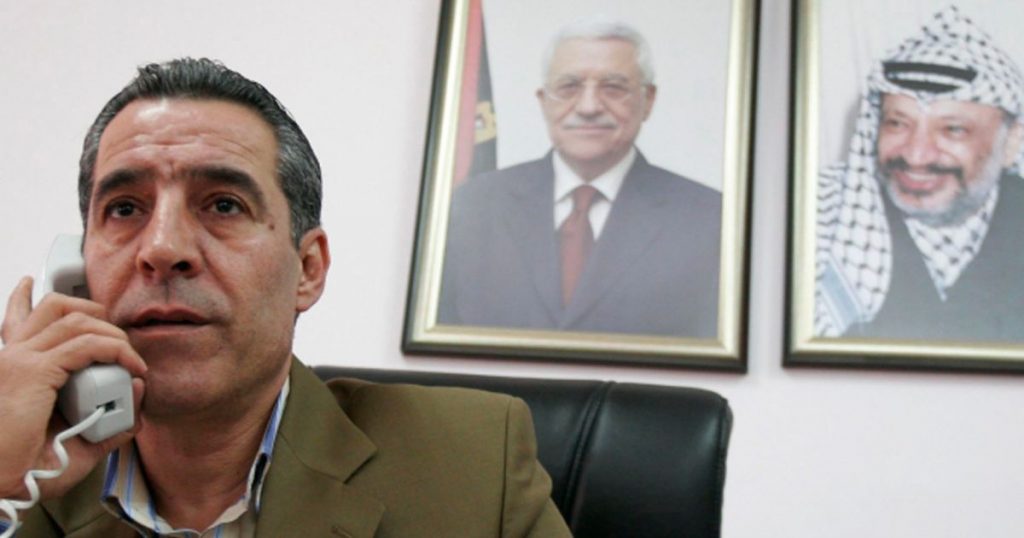Australia/Israel Review
Scribblings: PA destroys its own “Pay for Slay” welfare excuse
May 29, 2019 | Tzvi Fleischer

The “pay for slay” payments of the Palestinian Authority (PA) are basically bankrupting them. This policy of paying monthly salaries to Palestinians imprisoned for terrorism offences by Israel, and making payments to the families of Palestinians killed carrying out terrorism, has led to both the US and Australia ending direct aid payments to the PA. Even more importantly, the PA is now refusing all transfers of tax payments from Israel – the PA’s single most important source of revenue – because Israel is deducting funds equivalent to the “pay for slay” budget from the transfers. This has led to a dangerous financial crisis in the PA over recent weeks.
Israel can hardly be expected to facilitate these payments, which essentially incentivise Palestinians to murder Israelis. Yet the PA appears to prefer bankruptcy to forgoing the “pay for slay” payments, with former PA Minister for Civilian Affairs, Hussein al-Sheikh, telling journalists earlier this year that “if we have one dollar, we will spend it on the families of our martyrs and prisoners.”
Internationally, the PA has attempted to portray the payments as welfare subsidies for needy families of the prisoners and those killed. For instance, former PLO envoy to the US Husam Zomlot said of the payments in 2017: “This is a program that is used for the victims of the occupation… It’s a program to give the families a dignified life, they are provided for, so they and their kids can lead a different future.” Some Western supporters of the Palestinian cause make similar claims.
In fact, this is obvious nonsense. Welfare payments for needy Palestinian families fall under a separate PA budget and PA welfare stipends are much smaller than the “pay for slay” payments to “martyrs” and prisoners. Moreover, the amounts of the monthly prisoner payments are indexed to the length of the sentence and thus the severity of the offence – which has nothing to do with welfare needs, but everything to do with rewarding terrorist acts.
Now the PA is dropping the welfare pretext, and openly admitting that yes, the payments are basically designed to reward anti-Israel violence, which is seen as a Palestinian “national interest”.
At the Arab League conference on April 21, PA President Mahmoud Abbas stated, “We have been paying salaries to the families of the Martyrs, to the prisoners, and to the wounded since 1965. This is because they were killed, imprisoned, or wounded because of a national interest and for the sake of a national interest, and not for personal reasons.”
In an interview with Israeli journalists on April 16, Abbas’ official spokesperson Nabil Abu Rudeina was even less ambiguous, saying of the payments, “Israel needs to understand this. It is impossible to send a soldier to war and then not take care of his family. We are talking about someone who acts on our behalf and receives orders from us.”
That’s right – he said Palestinian terrorists act on the PA’s behalf and receive orders from it.
What makes this even more disheartening is that it is coming from Abbas and his personal spokesperson. While Abbas has many flaws, it is generally acknowledged by all informed observers that he is personally opposed to terrorism against Israel, viewing it as a counterproductive tactic, if not necessarily immoral. This was not true of his predecessor Yasser Arafat – who actively encouraged terror during the Second Intifada prior to his death – and is also not true of many other current leaders of Abbas’ Fatah movement, let alone Hamas. Abbas is actually working with Israeli security forces to contain West Bank violence and is almost certainly not “ordering” terrorism, though some of his rhetoric in recent years does appear to have encouraged “lone wolf” attacks by Palestinians.
In other words, the Palestinian national ethos of “armed resistance” is so entrenched that Abbas feels obliged to risk bankruptcy rather than stop payments which he more or less admits were designed to incentivise terrorists – even as he in fact acts to try to prevent most terrorism. His spokesperson even claims the PA “orders” this terrorism.
How can one possibly hope to end the Israeli-Palestinian violence and establish a secure two-state peace when the PA’s leader cannot stop incentivising terrorism, even when he personally believes it is a bad idea.
As distinguished American political scientist Walter Russell Mead notes in his piece in this edition, “it is the Palestinian myth of eternal resistance, and the violence and terrorism the myth legitimates, that perpetuates Israel’s occupation.” Sadly, it is hard to foresee the Palestinian leadership ever moving away from that myth.
Tags: Israel, Palestinians, Terrorism






